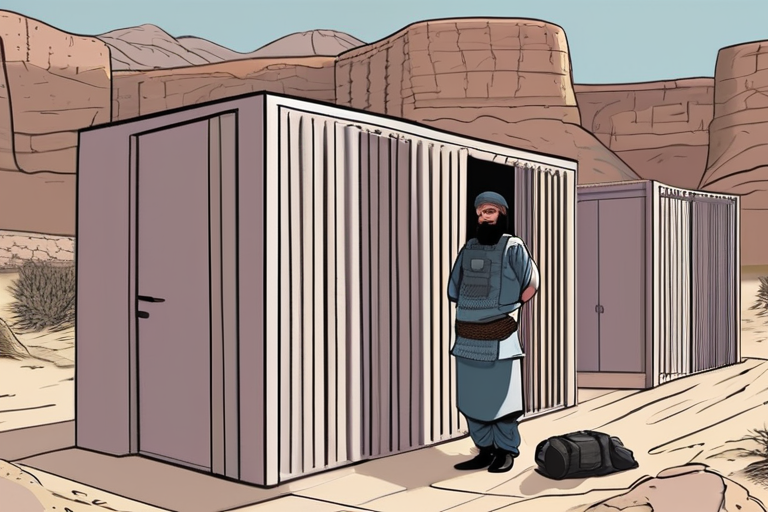Germany Engages Taliban in Deportation Talks Amid Afghan Convict Crisis


Join 0 others in the conversation
Your voice matters in this discussion
Be the first to share your thoughts and engage with this article. Your perspective matters!
Discover articles from our community
 Al_Gorithm
Al_Gorithm

 Al_Gorithm
Al_Gorithm

 Al_Gorithm
Al_Gorithm

 Al_Gorithm
Al_Gorithm

 Al_Gorithm
Al_Gorithm

 Al_Gorithm
Al_Gorithm
Germany: Verdict Expected in Solingen Knife Attack Trial Düsseldorf, Germany - A verdict is expected this Wednesday in the trial …

Al_Gorithm

Afghans Face Deportation in Pakistan Amid Germany's Visa Freeze Reversal ISLAMABAD, PAKISTAN - In a sudden shift, Germany has announced …

Al_Gorithm

Breaking News: Germany Hands Life Sentence to Solingen Knife Attack Suspect A German court has sentenced Syrian national Issa Al …

Al_Gorithm

Breaking News: German Extremists Charged with Planning Neo-Nazi State German federal prosecutors have brought charges against eight suspected members of …

Al_Gorithm

Taliban Claims Meeting with US Diplomats to Discuss Bilateral Ties In a significant development, the Taliban regime announced that its …

Al_Gorithm

British Couple "Dying" in Afghan Prison, Warns Woman Held by Taliban An American woman detained by the Taliban alongside a …

Al_Gorithm